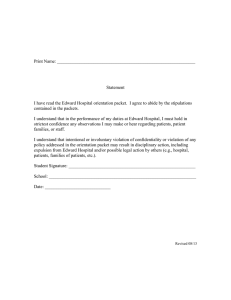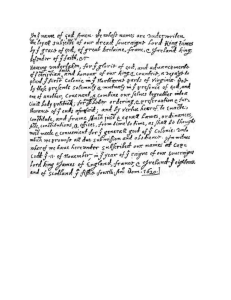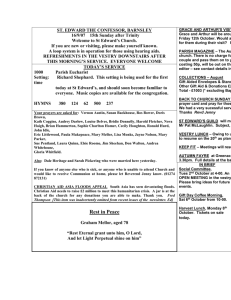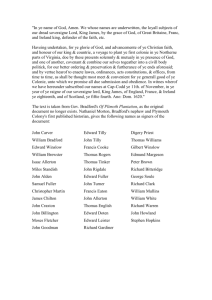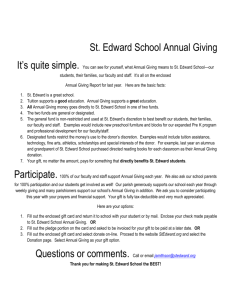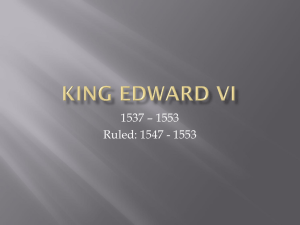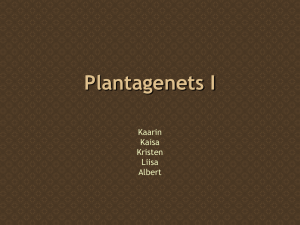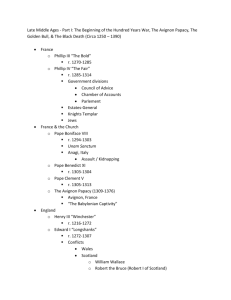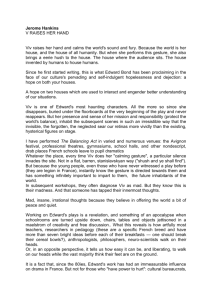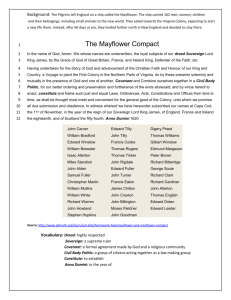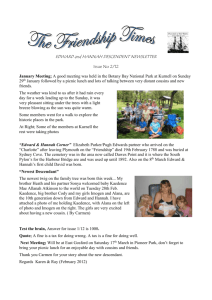Matthew - nickell7english
advertisement
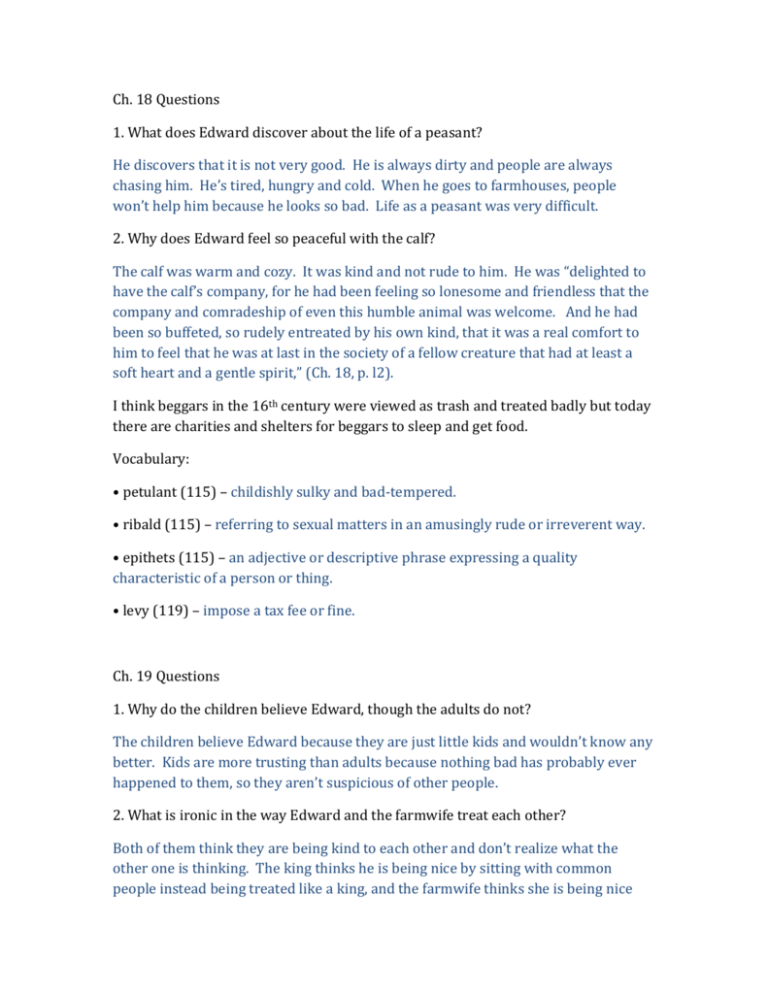
Ch. 18 Questions 1. What does Edward discover about the life of a peasant? He discovers that it is not very good. He is always dirty and people are always chasing him. He’s tired, hungry and cold. When he goes to farmhouses, people won’t help him because he looks so bad. Life as a peasant was very difficult. 2. Why does Edward feel so peaceful with the calf? The calf was warm and cozy. It was kind and not rude to him. He was “delighted to have the calf’s company, for he had been feeling so lonesome and friendless that the company and comradeship of even this humble animal was welcome. And he had been so buffeted, so rudely entreated by his own kind, that it was a real comfort to him to feel that he was at last in the society of a fellow creature that had at least a soft heart and a gentle spirit,” (Ch. 18, p. l2). I think beggars in the 16th century were viewed as trash and treated badly but today there are charities and shelters for beggars to sleep and get food. Vocabulary: • petulant (115) – childishly sulky and bad-tempered. • ribald (115) – referring to sexual matters in an amusingly rude or irreverent way. • epithets (115) – an adjective or descriptive phrase expressing a quality characteristic of a person or thing. • levy (119) – impose a tax fee or fine. Ch. 19 Questions 1. Why do the children believe Edward, though the adults do not? The children believe Edward because they are just little kids and wouldn’t know any better. Kids are more trusting than adults because nothing bad has probably ever happened to them, so they aren’t suspicious of other people. 2. What is ironic in the way Edward and the farmwife treat each other? Both of them think they are being kind to each other and don’t realize what the other one is thinking. The king thinks he is being nice by sitting with common people instead being treated like a king, and the farmwife thinks she is being nice letting him sit at the table even though he is a peasant. “The goodwife had intended to feed this young tramp with broken victuals in a corner, like any other tramp, or like a dog; but she was so remorseful for the scolding she had given him, that she did what she could to atone for it by allowing him to sit at the family table and eat with his betters, on ostensible terms of equality with them; and the king, on his side, was so remorseful for having broken his trust, after the family had been so kind to him, that he forced himself to atone for it by humbling himself to the family level, instead of requiring the woman and her children to stand and wait upon him while he occupied their table in the solitary state due his birth and dignity.” (Ch. 19, p. 86) 3. Why does Edward decide to perform the menial tasks? Edward was surprised when she told him to wash the dishes but “then he said to himself, ‘Alfred the Great watched the cakes; doubtless he would have washed the dishes, too – therefore will I essay it.’” (Ch. 19, p. 87). He thought if Alfred the Great could help then he could help too. Vocabulary: • demented (123) – behave irrationally due to anger, distress or excitement. • sagacity (125) – good judgement. • cordial (125) – warm and friendly. • staggerer (125) – walk or move unsteadily, as if about to fall.
